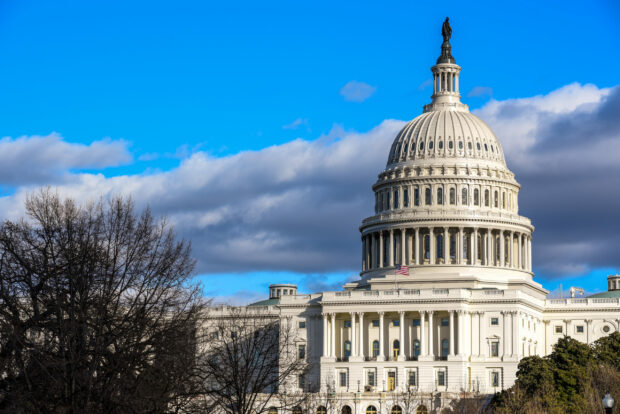IAVA | September 18, 2017
Read: IAVA Update on the 2017 National Defense Authorization Act (NDAA)

NDAA UPDATE
Last week on Capitol Hill, IAVA was focused on the National Defense Authorization Act (NDAA). Each year, Congress works to pass this immense bill that sets the budget and expenditures for the next fiscal year for the Department of Defense (DoD), starting 1 October each year. It also determines the agencies responsible for defense, establishes funding levels for specific programs, and sets the policies under which money will be spent. Often, this bill includes provisions that address issues that IAVA members and supporters care about. This year is not different.
IAVA is tracking amendments like:
Provision to protect service members against cyber exploitation.
One example of IAVA-supported legislation included within the NDAA is the PRIVATE Act (S.1296/H.R. 2052), which addresses gaps in policy around cyber exploitation. These gaps were brought to light with the Marines United scandal that broke earlier this year, in which thousands of nude and intimate images of hundreds of women marines were found to be shared on a private Facebook page.
A proposal to repeal sequestration. IAVA continues to recognize the danger that sequestration poses to military readiness. We have advocated in our Policy Agenda (Pg 41, Section 5.2.1) for the end of sequestration since the policy was adopted.
The House bill has already passed, and last week it was the Senate’s turn to move their bill forward. With over 100 amendments to incorporate, the Senate Armed Services Committee began debating early in the week, but moved to suspend debates on Thursday and bring the bill to a floor vote (and presumed passage) this evening.
Not all amendments will make their way into the version of the NDAA that will be voted on today. However, just because a measure didn’t pass in the NDAA doesn’t mean it will not be introduced in a separate bill at a later date. For example, Senators McCain (R-AZ), Gillibrand (D-NY), Collins (R-ME), and Reed (D-RI) introduced Friday a bipartisan bill that would protect transgender service members by preventing DoD from removing currently serving members of the Armed Forces based solely on their gender identity. This legislation came after the NDAA debate was cut off and the Senate did not get an opportunity to vote on the bipartisan amendment introduced by Gillibrand and Collins, and supported by McCain and Reed, that would have achieved the same goal. In our Policy Agenda (Pg 52, Section 8.1.5), IAVA previously recommended an evaluation of the policy and readiness implications of DoD allowing transgender service members to serve openly in the military and integrate the findings into a comprehensive plan of action for transgender service member serving in the military. DoD was moving in that direction, and we strongly believe they should continue in that vain.
Stay tuned for more on NDAA18 as IAVA continues to monitor its progress, and we’ll post a rollup once all of the dust settles.





